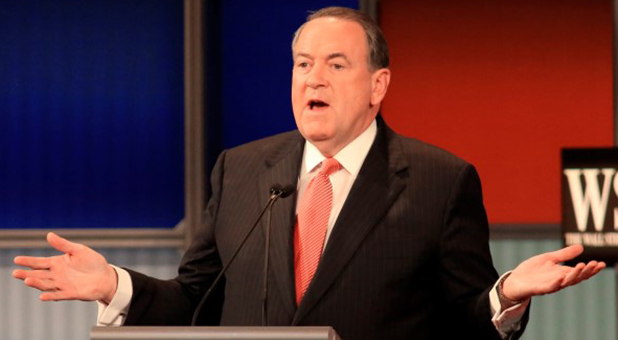Where the Polls Were: 2008 & 2012
With a little more than a month and a half to go before the first-in-the-nation Iowa Republican Caucus, polling may indicate the outcome has been well decided. But history tells a completely different story.
The current Real Clear Politics polling averages in Iowa give U.S. Sen. Ted Cruz (R-Texas) a 1-point margin over national front-runner Donald Trump, 26.4-25.4. U.S. Sen. Marco Rubio (R-Fla.) also holds a 1-point margin, 12.9-11.9, over Dr. Ben Carson, who has seen his numbers in the Hawkeye State drop off sharply in the past two weeks.
According to the RCP averages, former Florida Gov. Jeb Bush has fallen to 5.6 percent, and no other candidate is scoring above 3.5 percent. But don’t be so quick to toss those candidates aside: In 2008 and 2012, the eventual winner of the Iowa Republican Caucus overcame huge polling deficits.
On Nov. 16, 2007, exactly 48 days before the Jan. 3, 2008, Iowa Republican Caucus, the RCP polling averages showed former Massachusetts Gov. Mitt Romney with a nearly 10-point lead, 28.3-18.8, over former Arkansas Gov. Mike Huckabee. On Caucus Night, however, Huckabee secured a 9-point victory over Romney.
Polling in mid-November 2011 proved even more futile. The larger pool of candidates, and some controversies in the background, led to an unsettled field all the way up to Caucus Night in Iowa.
On Nov. 16, 2011, again exactly 48 days before the Jan. 3, 2012, Iowa Republican Caucus, the RCP polling average showed businessman Herman Cain with a 3-point lead over Romney, 21.5-18.3, while former House Speaker Newt Gingrich and then-U.S. Rep. Ron Paul (R-Texas) averaged 14.5 and 13.0 percent, respectively. On Caucus Night, however, former U.S. Sen. Rick Santorum (R-Pa.) emerged as the eventual winner.
Santorum, who had been polling at 3.8 percent—good enough only for seventh place—in mid-November, wound up with 24.6 percent of the vote. Romney increased his support to 24.5 percent—creating the closest finish in the 32-year history of the Iowa Republican Caucus—while Paul finished with 21.4 percent.
Cain, facing controversy over alleged past extra-marital affairs, had already dropped out before Caucus Night. Meanwhile, Gingrich, who had been leading in polls just days before the vote took place, finished in a disappointing fourth place at 13.3 percent.
So, despite the current numbers, and any narratives being espoused by campaigns or the media, keep in mind the race in Iowa is far from decided.
Currently, two past winners—Huckabee and Santorum—are still polling around 2 and 1 percent, respectively. They also happen to be the two most-traveled candidates in Iowa. A 20-point swing by either of them would significantly alter the field in the first-in-the-nation caucus state.
Also keep in mind most current polling significantly undercuts voters who do not have party affiliation. In Iowa, “no party” voters are the largest bloc in each of the state’s 99 counties and account for nearly 40 percent of its active registered voters. Both Trump and Carson have made significant inroads toward attracting these voters to the GOP.














































